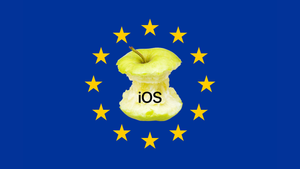The European Commission has published details of why it thinks that Apple’s App Store rules are still not compliant with the European Union’s Digital Markets Act. In particular, it specifically focuses on the rules around the sign-posting of alternative payment options within iOS apps, something that Spotify has been particularly vocal about.
Under the DMA, app developers should be able “to inform their customers of alternative cheaper purchasing possibilities, steer them to those offers and allow them to make purchases”, and this should be “free of charge”, says the Commission in its statement.
“Our preliminary position is that Apple does not fully allow steering”, says Margrethe Vestager, the Commission’s EVP in charge of competition policy. “Steering is key to ensure that app developers are less dependent on gatekeepers’ app stores and for consumers to be aware of better offers”.
App developers - and especially Spotify - have long complained about Apple’s rules around in-app payments. Developers must use Apple’s own transactions system for taking in-app payments, which charges a 15-30% commission. In addition to that, developers were prohibited from sign-posting or linking to other payment options - such as making payment via a developer's own website - because of a thing called the anti-steering provision in Apple’s rules.
Following a complaint by Spotify, the Commission investigated Apple’s anti-steering provision and concluded it was anticompetitive, even before the DMA had gone into force.
On the back of both that ruling and the DMA, Apple changed its rules so that developers are allowed to sign-post users towards alternative payment options. However, there are restrictions on how that works, and Apple currently charges a 12-27% commission on any purchases that begin with a link in an iOS app.
The continuing restrictions by Apple mean that, “developers cannot provide pricing information within an app”, says the Commission. And while links can now be included to web pages where payments can be made, "several restrictions imposed by Apple prevent app developers from communicating, promoting offers and concluding contracts”.
As for Apple still charging fees on external payments, the Commission says that although charging a fee for “facilitating via the App Store the initial acquisition of a new customer” is reasonable, it thinks that “the fees charged by Apple go beyond what is strictly necessary”.
These preliminary findings have been sent to Apple, which will now respond. If the findings are confirmed and Apple’s rules do not comply with the DMA, then the Commission says that this will result in a formal “non-compliance decision” from the EU - and a potentially huge fine.
The possible fines for non-compliance of the DMA can be enormous. When reports of these preliminary findings first circulated earlier this month, the FT noted that “if found to be breaking the DMA, Apple faces daily penalties for non-compliance of up to 5% of its average daily worldwide turnover, which is currently just over $1 billion”.

